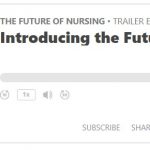Nurse reveals the most frustrating parts of job
 Nearly nine in 10 American nurses believe that nobody understands the work they do, according to new research.
Nearly nine in 10 American nurses believe that nobody understands the work they do, according to new research.
A recent survey asked 1,000 nurses about how they’re perceived in their profession and by the public, finding that 85 percent feel misunderstood by the general public.
Forty-seven percent said the biggest misconception about nurses is that their job is “easy” compared to other healthcare professionals.
However, results also showed that nurses think they’re portrayed in the media more positively now than before the pandemic (63% vs. 55 percent).
Even so, 63 percent still feel like nurses aren’t seen as “human” by patients and doctors.
Conducted by OnePoll on behalf of connectRN for National Nurses Week, the survey found that most believe there to be common misconceptions about what their job entails.
Similarly, 83 percent said nurses are under-recognized for what they do as front-line workers.
And 63 percent of nurses feel the typical ways in which their employers have shown appreciation feel “patronizing.”
While sharing the most difficult parts of their job, respondents brought up working long hours (30 percent), providing emotional support for multiple patients in one shift (20 percent), and dealing with nurse-to-patient ratios that are too large (18 percent).
Two-thirds of nurses with children even feel required to choose their job over time with their kids (67 percent).
When asked what would make their career feel more bearable, nurses cited higher pay (41 percent) and smaller nurse-to-patient ratios (23 percent), which would allow them to dedicate more time to each patient.
“The future of healthcare will be built shoulder to shoulder with the nurses and aides who have supported us all,” said connectRN CEO Ted Jeanloz.
“It’s critical that we, as an industry, listen to what nurses need and take measures to improve their working conditions to empower this community and inspire those who are just starting their careers.”
Still, many respondents shared that they love what they do, describing their career as rewarding (66 percent), demanding (47 percent) and joyful (41 percent).
Over half (54 percent) reported a desire to heal people; another 40 percent say they entered the profession based on their experiences with a family member, and 29 percent wanted to be the support they wished they had from others.
They also shared some of the best moments of their nursing career, including one who recounted taking a long-stay ICU patient outside for the first time in three months.
The patient was so appreciative that she cried, according to the respondent. “I still think about her five years later,” they said.
Seventy-nine percent admitted that the doctors, specialists, and other health care workers they work with every day often make them feel supported, and 40 percent said they feel the most appreciation from their patients.
Most enjoyed receiving verbal or written “thank you’s” (64 percent), followed by practical gifts that help enhance their everyday lives, such as a gift for a wellness service or product (34 percent) or a gift card to a restaurant or food delivery service (34 percent).
“To hear how nurses and aides have been ‘recognized’ in the past for their contributions is both sad and infuriating. We have to do better,” added Jen Reddy, connectRN’s chief marketing officer.
“Our goal this year is to change the experience for this community and demonstrate we are listening — and valuing their impact — not just for one week, but every day.”
(This story originally appeared in The Sun.)




